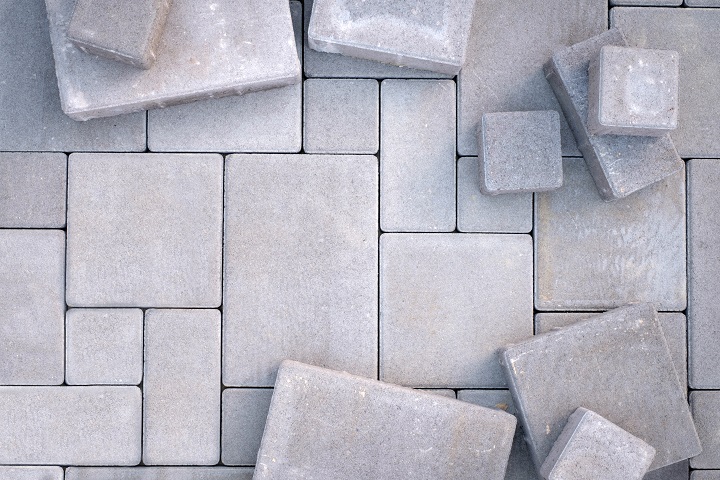Finance
4 Concrete Projects To Raise Property Value
Whether you’re interested in raising your property’s value or not, it’s always a good idea to prepare for certain possibilities.

Generally, homeowners probably have an awareness of the rising economic force called home appreciation. Home equities are on the rise as properties become more saleable by the year. Still, any smart homeowner probably knows that home appreciation comes with the need for smart redesigning or renovations.
One good reason to commit to home renovations is to raise your property’s value. House renovations don’t only mean having a comfortable home for yourself, but they can also mean helping others acquire a safe, functional, and pleasing new home.
Whether you’re interested in raising your property’s value or not, it’s always a good idea to prepare for certain possibilities. You may opt for simple home renovations and redesigning, but nothing beats concrete projects to step up the aesthetics and functionality of your property.
Table of Contents
1. Why Concrete?
Concrete has always been the preferred material for any construction project. The reason behind its viability is mostly attributed to concrete’s remarkable properties, making it the best material for any construction or architectural project.
For starters, concrete has 100% recyclability and performs well in the carbon emission reduction game–it doesn’t emit any toxic compounds and chemical residue that affect the environment. Its properties also allow it to be recycled as an aggregate, making it plausible to re-use and re-mix with other compatible materials, reducing the need to harvest new materials.
Contractors, like the Concrete Colorado Springs, put their faith in concrete for its durability. Since it’s often used in home construction, concrete is strong, resilient, and versatile in soil conditions and physical weathering. It’s also adaptable to aesthetic purposes as it can be dyed according to one’s needs and can be wielded for full functionality–all for low maintenance cost.
2. Concrete Projects For Your Property
Concrete is also one of the most abundant materials in virtually all locales around the world. This makes concrete your best bet for all your renovation and reconstruction projects.
To start with, here are some concrete projects that you can add to your property to raise its value:
3. Concrete Driveways
Driveways are among the first few key features of a house that people experience and appreciate. If you’re considering putting your house on the market at some point, it’s imperative that you’d want an attractive driveway to increase your home’s resale value.

Concrete driveways are the way to go for a few simple but powerful reasons. First, it costs little energy for concrete construction to take place. Added by the fact that concrete lasts long, maintenance also costs less while retaining its full functions. Furthermore, since it absorbs fewer UV rays and withstands heavy loads, such as automobiles, physical weathering is a non-issue. Thus, you can be assured that concrete driveways are one of the best investments for property resale.
4. Concrete Patios
Not all houses are built for patios, but it’s possible to rework space and construct a comfortable deck in any place. Patios serve as an alternative to dining areas and kitchens where families enjoy an outside experience for social and family gatherings. It’s an extra outdoor space that you could use for hosting guests and small intimate parties. Just a few items of furniture here and there and an outdoor stereo system, and your patio’s good to go.
Concrete patios are economical for the same reasons indicated above. But what makes concrete patios a gamechanger is their addition to your home’s complete and total aesthetics and functions. Concrete is durable in design–it can be stained for effect or stamped in just about any variety of looks. Gatherings will never be the same with a beautiful concrete patio.
5. Concrete Fireplaces
Who doesn’t like a nice fireplace? Just like with patios, concrete works both in design and use. Fireplaces are a great addition to homes if you still don’t have one. Apart from its obvious function, it brings a premium experience of cosiness that makes you feel truly at home.
Fireplaces are simple structures that perfectly work with concrete’s agile properties. Due to its versatility, concrete can be made to mimic looks and textures. It’s not a ‘cheap alternative’ for being an imitation, say, of brick walls or slate. It’s a wise and fool-proof alternative to more expensive but tenuous materials.
6. Concrete Retaining Walls For Stone Veneers
Stone veneers on retaining walls have gained traction for decades as a high-end exterior and interior design. The luxurious look is among the favourites of landscape architects. More and more, it has also become the staple preference among many homeowners.
Compared to simple, smooth, and plastered retaining walls, concrete masonry unit (CMU) blocks offer an efficient alternative to typical poured concrete. CMU blocks work well, especially if you want the stone veneer-look for your retaining walls. This is because run concrete poses certain risks, such as complete reconstruction, due to simple damages.
7. Takeaway: Raise Property Value For Less
Concrete’s main selling points have to be its cost efficiency and reliability. Raising property value doesn’t have to cost you too much. After all, the key to successful saleability isn’t overdoing what’s already sufficient. Adding or redesigning your property already goes a long way. Just remember that it only takes sound decisions and the right concrete plan.
Business
Navigating the Process of Selling Deceased Estate Shares
This article aims to provide a comprehensive guide to selling shares from a deceased estate. Process of Selling Deceased Estate Shares.

Table of Contents
1. Understanding the Basics of Selling Deceased Estate Shares
Dealing with a deceased estate can be a challenging and emotional process, especially when it comes to handling financial assets like shares. This article aims to provide a comprehensive guide to selling shares from a deceased estate.
2. What are Deceased Estate Shares?
Deceased estate shares refer to the stocks and shares that were owned by an individual who has passed away. These shares become part of the deceased’s estate and are subject to the terms of their will or estate plan.
3. The Importance of Valuing the Shares
The first step in selling deceased estate shares is to obtain a current valuation. This valuation is crucial for several reasons: it helps in distributing the estate among beneficiaries, it may be necessary for tax purposes, and it gives an idea of the market value of the shares.
4. Legal Requirements and Executor Responsibilities
The executor of the estate plays a pivotal role in the management and distribution of the deceased’s assets. This section will cover the legal responsibilities and steps the executor needs to take to lawfully sell the shares.
5. Obtaining Probate
Before any action can be taken with the shares, it’s often necessary to obtain probate. Probate is a legal process that confirms the executor’s authority to deal with the deceased’s assets.
Transferring Shares into the Executor’s Name
Once probate is granted, shares may need to be transferred into the name of the executor. This process varies depending on the company and the type of shares.
6. The Process of Selling Shares
After completing legal formalities, the executor can proceed with selling the shares. This section will outline the steps involved in this process, including choosing a brokerage or financial service, understanding market conditions, and making informed decisions.
Deciding on the Right Time to Sell
Timing can significantly impact the returns from selling shares. Executors need to consider market conditions and financial advice to determine the best time to sell.
Completing the Sale
This subsection will detail the actual process of selling shares, including placing orders, handling transaction fees, and ensuring all regulatory requirements are met.

7. Navigating Tax Implications and Reporting
Managing tax obligations is a critical aspect of selling deceased estate shares. This section will explain the potential tax implications and the importance of accurate reporting for both capital gains tax and inheritance tax considerations.
Understanding Capital Gains Tax Responsibilities
When shares are sold, any profit made from the time of the deceased’s passing to the sale date may be subject to capital gains tax. Executors need to be aware of these implications and plan accordingly.
Inheritance Tax Considerations
In some jurisdictions, the value of the deceased estate’s shares might impact inheritance tax calculations. It’s essential for executors to understand these aspects in order to ensure compliance with tax laws.
8. Common Challenges and How to Overcome Them
Selling deceased estate shares can present unique challenges. This section will discuss common issues such as disputed wills, fragmented information about the shares, and market volatility.
Dealing with Disputed Wills and Beneficiary Disagreements
Disputes over the will or disagreements among beneficiaries can complicate the process. Executors must handle these situations delicately and legally.
Managing Market Volatility
Shares can be subject to market fluctuations. Executors should be prepared for this volatility and may need to consult financial advisors to navigate these waters effectively.
9. Tips for Executors Handling Deceased Estate Shares
This section will provide practical advice for executors, including the importance of seeking professional advice, keeping thorough records, and communicating clearly with beneficiaries.
Seeking Professional Financial and Legal Advice
The complexity of selling shares from a deceased estate often necessitates professional advice. This can range from legal counsel to financial advisory services.
Record Keeping and Communication with Beneficiaries
Maintaining transparent and thorough records is crucial. Executors should also prioritize clear and consistent communication with all beneficiaries to avoid misunderstandings.
Conclusion
Selling shares from a deceased estate is a responsibility that requires careful attention to legal, financial, and interpersonal dynamics. By understanding the process, staying informed about tax obligations, and tackling challenges head-on, executors can fulfill their duties effectively and respectfully.
-

 Instagram4 years ago
Instagram4 years agoBuy IG likes and buy organic Instagram followers: where to buy them and how?
-

 Instagram4 years ago
Instagram4 years ago100% Genuine Instagram Followers & Likes with Guaranteed Tool
-

 Business5 years ago
Business5 years ago7 Must Have Digital Marketing Tools For Your Small Businesses
-

 Instagram4 years ago
Instagram4 years agoInstagram Followers And Likes – Online Social Media Platform
















